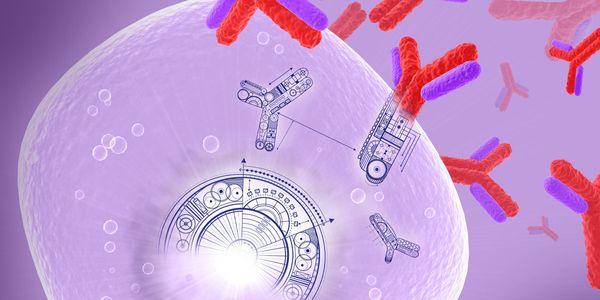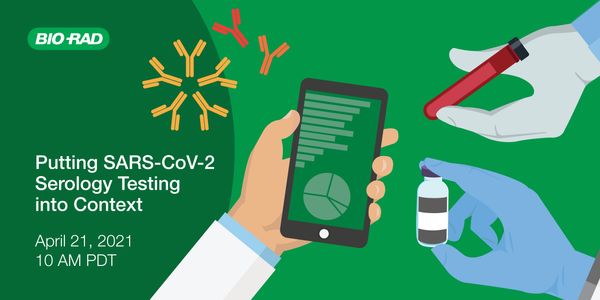Molecular biology plays an important role in the diagnosis and treatment of cancer. On a biological level, the development of cancer is characterized by the acquisition of genetic mutations which cause abnormal cell growth, eventually resulting in malignant disease. Understanding how molecular damage can cause these cancer-driving mutations can help design optimal treatment regimens
-
Learning Objectives: 1. Define the impact of PD-L1 expressed on non-tumor, non-hematopoietic cells in T cell-mediated tumor control 2. Reveal the contribution of IFNg signaling in dermal lym...
Rhabdomyosarcoma (RMS) is a soft tissue cancer commonly arising in muscle and is the most common soft tissue cancer in children. Patients with metastatic RMS have a poor prognosis that has n...
Date: May 27, 2021 Time: 9:00am PDT Since the current SARS-CoV-2 outbreak, there has been an urgent need to define the immune response and understand the relevant immunological mechanisms un...
Date: May 25, 2021 Time: 8:00am (PDT) Reliable expression of recombinant proteins in human, CHO, or insect cells is essential for many aspects of biomedical research and drug development, bu...
Date: May 18, 2021 Time: 8:00am (PST) The global pandemic has caused an increased focus and scrutiny on molecular diagnostic assay development, resulting in a need for assays that provide qu...
Date: May 18, 2021 Time: 7:00am PDT, 10:00am EDT Proteins encoded by mutant genes in cancers can be processed and presented on tumor cell surface by human leukocyte antigen (HLA) molecules,...
Date: May 11, 2021 Time: 10:00zm PDT Your samples are some of the most valuable assets in the laboratory. After spending countless hours on extraction and preparation, your conclusions could...
Date: May 5, 2021 Time: 8:00am PDT, 11:00am EDT Emergence of genetic mutations within the SARS-CoV-2 genome that may enhance transmissibility, increase symptom severity or improve the virus...
Comprehensive genomic profiling (CGP) is advancing precision oncology research through simultaneous analysis of multiple biomarkers in a single next-generation sequencing (NGS) assay. In thi...
Next-generation sequencing is transforming scientific research and testing. Thanks to large-scale cancer projects (e.g. The Cancer Genome Atlas - TCGA), the accumulated knowledge is now used...
























